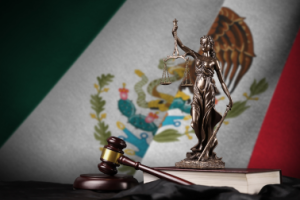Brexit: Point of view of 2 legal firms in London
Brad Richards / Haynes and Boone LLP
In the early summer of 2016, Haynes and Boone LLP in the United States and Curtis Davis Garrard LLP in London were in the midst of finalizing negotiations on their merger. The firms discussed the anticipated 23 June referendum on EU membership and agreed that a vote for Brexit, if it occurred, would not be a material adverse change to the transaction. On that basis, the merger was completed on September 1, 2016. We became Haynes and Boone CDG LLP in London and we have not looked back. We felt confident that our expertise in shipping, international offshore energy and litigation and arbitration in London would continue to be in high demand, and we were right. We have been understandably concerned about the impact of Brexit, if it were to occur, on the economy of the UK, but we also know that our legal work in London is international in scope and is not dependent on the performance of the UK economy.
That knowledge has led us to grow the office since the Brexit vote. I came to London at the time of the merger as the 14th lawyer in the London office. We now have 28 lawyers based in London, 2 dual-licensed lawyers based in both London and the United States, and we have additional new lawyers slated to join the firm within the next few months. We have expanded our service offerings to include litigation and arbitration in all types of international commercial disputes, we have corporate expertise in both M&A and capital markets transactions, and we have funds finance expertise as well.
Although we have been able to double our size in two years, we must admit that we have watched with considerable alarm as the Government of the United Kingdom and the European Union have to date been unable to reach agreement on their relationship after Brexit. We therefore now view Brexit as somewhere between a Y2K event (that is, an event that was much more alarming in anticipation than in reality) and a disaster. It may be more like Y2K if the UK and the EU can reach a reasonable consensus for a soft Brexit, or if the UK holds a second referendum which results in a rescinding of the Brexit decision; it may be more like a disaster if we must endure a hard Brexit and we have many years of disruption in trade and services between the UK and the EU. We therefore remain wary. But, we are not allowing that wariness to change our plans for London. We came to London due to the importance of English law and London as a global financial centre. Brexit does not change that reality.
Brad Richards
Haynes and Boone LLP
Steven Sidkin / Fox Williams LLP
Introduction
In Alice in Wonderland, the author, Lewis Carroll wrote, “If you don't know where you are going any road can take you there.”
At the present time we do not know what form Brexit will take. All that is known is that because the Article 50 withdrawal notice which the UK gave to the EU expires at 11 pm UK time on 29 March 2019, the next working day is April Fools’ Day!
If we work on the basis that civil servants who advise UK Government ministers are aware of the underlying principles of the TFEU and the acquis communautaire, either something will give in terms of:
• the EU27 being prepared to compromise; or
• the UK Government being prepared to compromise; or
• there being the largest amount of fudge (truquer or aparejo as opposed to bonbons au sucre or dulce de azúcar) ever produced; or there will be a hard Brexit.
The Law Society of England and Wales
On 22 August 2018 the Law Society issued a press release.
This stated that almost GBP 3bn could be stripped from legal sector turnover by 2025 if the UK crashes out of the EU without a deal according to new economic forecasts released by the Law Society of using alternative Brexit scenarios developed in collaboration with Thomson Reuters.
It went on to state that Brexit is likely to have a significant negative effect on the legal sector in the medium and longer term. This is largely due to the knock-on impact of Brexit on the wider economy as demand for legal services relies on the success of other sectors of the UK economy.
“Our econometric model predicts 2.2% average annual growth from 2019 – 2025 with a soft Brexit. This drops to just 1.5% with ‘harder’ Brexit options such as a Canada-style free trade agreement (FTA).
“If the UK had to fall back on Word Trade Organisation (WTO) rules – a ‘no deal’ scenario – growth would only be 1.1% per year on average over this period.”
Our clients
Some clients have given thought as to what may happen in the event of a so-called hard Brexit. Some are starting to think. Others have yet to start. Why the discrepancy?
Brexit and business thinking is to a considerable degree a microcosm for business supply chains. It is also the case that:
1. there is a lack of understanding as to what is being negotiated and why. The managing director of one business claimed recently, “If we can’t agree the terms of a free trade deal, a hard Brexit will follow in March 2019.” In brief – no understanding that:
1.1 what is being negotiated at present are the terms of a withdrawal treaty (that is, the terms on which the UK will withdraw from the EU); and
1.2 whilst it is the case that the treaty is intended to contain the principles of a subsequent trade agreement, the withdrawal treaty is not a trade deal.
2. A hope that Brexit will just go away (the so-called “Ostrich approach”).
3. A belief that if it does not, the effect on business will be manageable.
To assist our clients we have produced a number of guides for business which we have made available to clients and on our website.
My firm
Fox Williams is a small-medium sized business law firm located in the City of London. Most of our work is international in some way or another. Whilst we act for clients across the breadth of the UK economy, we focus on 5 sectors:
• Financial services
• Technology
• Fashion
• Professional services
• Natural resources
It is our view that we have a robust and well balanced client base and practice which should allow us to weather successfully the Brexit transition.
But we also hope that we will not have to…………………………….
Steven Sidkin
Fox Williams LLP






